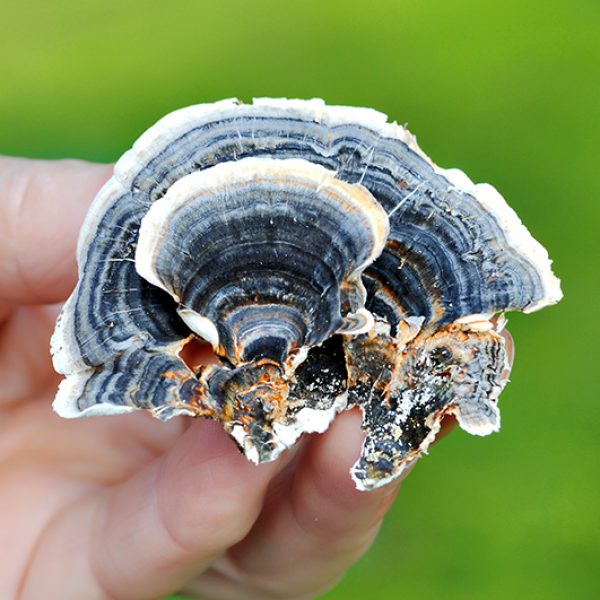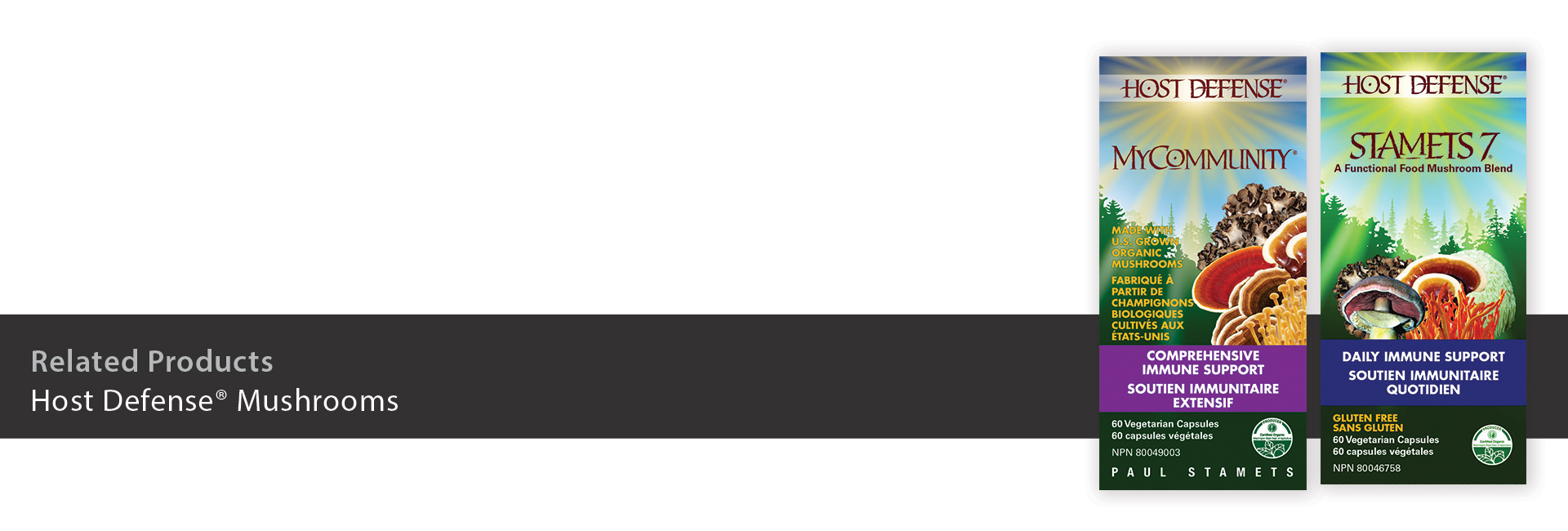

Top 3 Medicinal Mushrooms for Stress and Immunity
Mushrooms. Everyone is talking about them. Ten years ago, few people mentioned anything about mushrooms, even the edible varieties such as portobello and shiitake. However, over the last couple years, with the growing global focus on immunity, cognitive function and stress, mushroom interest has grown significantly. Mushrooms are anything but new and have been part of ethnobotanical practices the world over for centuries, even millennia. There are several medicinal mushrooms that everyone should be aware of to help support immunity and brain health due to their amazing health benefits!
1. Reishi – the most popular mushroom worldwide, also known as the mushroom of immortality.
Reishi mushroom is potentially the world’s strongest modulator of the immune response. Simply speaking, it both engages a range of immune cells into action as well as manages and balances overall immune function. Reishi is also a premiere adaptogen, supporting physical and mental endurance and builds energy within our body over time. It helps us adapt to stress, reducing the fight or flight response so that we feel calmer without feeling sedated. It is also well studied for supporting cardiovascular functioning and heart health, supporting balanced blood lipid levels and cellular antioxidant activity. We can use it for respiratory wellness, intestinal health, and liver function. You can see why it’s been touted as the mushroom of longevity throughout history!
2. Lion’s Mane – a tasty edible mushroom that can be easily incorporated into meals that also gives our brain a boost.
Given the current global experience, memory, mood and cognitive functioning could all use a boost after the past two years and research on Lion’s mane shows strong supportive activity in these areas. Finances, job, family, education, safety, grief… all of these issues and more have piled layers of stress upon the vast majority of people across the globe. Lion’s Mane also supports our nervous system and intestinal health playing a dual role for brain support. The intestinal tract is referred to as our ‘second brain’ impacting mood, mental acuity and cognitive functioning both positively or negatively depending upon on the health of the gut. Lion’s Mane provides beneficial fiber and food for our probiotic microflora, feeding lactobacilli and bifidobacteria microorganisms, supporting our immune system in the gut. Sometimes Lion’s Mane mushroom is referred to as the “smart mushroom”, and you can now see why!
3. Turkey Tail – another mushroom with research related to immunity.
Turkey Tail mushroom has a strong engaging action for immune cells, potentially stronger than Reishi and Lion’s Mane. It appears to drive the immune response for a rapid and diverse response and helps return the immune system back to its’ base line when it doesn’t need to be on guard any longer. Turkey Tail has been repeatedly researched and appears to be both effective and safe for immune support when we need it the most. A great go-to mushroom for acute immune support.
Host Defense Mushroom products are available in single mushroom varieties including, Reishi, Lion’s Mane and Turkey Tail and in specific targeted blends with additional mushrooms and herbs to take advantage of the synergy these combinations garner.
Host Defense uses both the mycelium (the root-like structure of the mushroom) and organic brown rice to grow it on. The mycelium ferments the organic brown rice and converts it into immune supportive compounds. Peer reviewed and published research on Host Defense products show strong and complex immune responses when consumed, and therefore we are confident that they work safely and effectively. Along with creating mushroom products that are tested for efficacy and safety, Host Defense is also expanding sustainability practices. We are actively reducing our carbon emissions, using 100% Post-Consumer Recycled, BPA free plastics, supporting reforestation projects and participating in Gold Standard global, carbon offset programs. We strongly believe that supporting the health and wellness for the Earth and our sister species is intricately connected to supporting the health and wellness of our fellow humans.
Jerry Angelini, MS, LRC
Head of Education | Host Defense® Mushrooms™ | Fungi Perfecti, LLC
